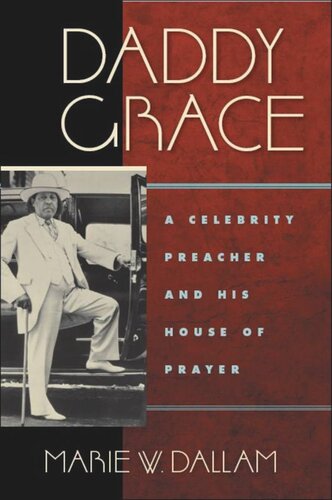

Most ebook files are in PDF format, so you can easily read them using various software such as Foxit Reader or directly on the Google Chrome browser.
Some ebook files are released by publishers in other formats such as .awz, .mobi, .epub, .fb2, etc. You may need to install specific software to read these formats on mobile/PC, such as Calibre.
Please read the tutorial at this link: https://ebookbell.com/faq
We offer FREE conversion to the popular formats you request; however, this may take some time. Therefore, right after payment, please email us, and we will try to provide the service as quickly as possible.
For some exceptional file formats or broken links (if any), please refrain from opening any disputes. Instead, email us first, and we will try to assist within a maximum of 6 hours.
EbookBell Team

4.0
46 reviewsCharles Manuel “Sweet Daddy” Grace founded the United House of Prayer for All People in Wareham, Massachusetts, in 1919. This charismatic church has been regarded as one of the most extreme Pentecostal sects in the country. In addition to attention-getting maneuvers such as wearing purple suits with glitzy jewelry, purchasing high profile real estate, and conducting baptisms in city streets with a fire hose, the flamboyant Grace reputedly accepted massive donations from his poverty-stricken followers and used the money to live lavishly. It was assumed by many that Grace was the charismatic glue that held his church together, and that once he was gone the institution would disintegrate. Instead, following his 1960 death there was a period of confusion, restructuring, and streamlining. Today the House of Prayer remains an active church with a national membership in the tens of thousands.
Daddy Grace: A Celebrity Preacher and His House of Prayer seriously examines the religious nature of the House of Prayer, the dimensions of Grace’s leadership strategies, and the connections between his often ostentatious acts and the intentional infrastructure of the House of Prayer. Furthermore, woven through the text are analyses of the race, class, and gender issues manifest in the House of Prayer structure under Grace’s aegis.
Marie W. Dallam here offers both a religious history of the House of Prayer as an institution and an intellectual history of its colorful and enigmatic leader.